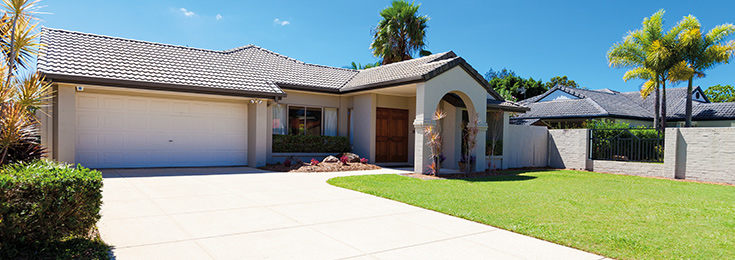New rules on claiming plant and equipment may affect you
On Tuesday the 9th of May 2017 the government proposed changes to the depreciation of plant and equipment assets in the federal budget.
 This prompted a number of property investors to contact BMT Tax Depreciation to discuss how they might be affected. Understandably so, as the last major changes to depreciation legislation were made by the government in the mid 1980’s.
This prompted a number of property investors to contact BMT Tax Depreciation to discuss how they might be affected. Understandably so, as the last major changes to depreciation legislation were made by the government in the mid 1980’s.
The main concerns investors had were about the impact the changes would have on their existing arrangements, future purchases and more widely on the property market.
The good news for investors is that properties purchased prior to 7:30pm on the 9th of May 2017 are unaffected, as the policy will be grandfathered. This means that any investor who exchanged contracts prior to this date can continue to claim depreciation deductions as normal.
The proposed changes outlined in draft legislation section two of Treasury Laws Amendment (Housing Tax Integrity) Bill 2017, remove a subsequent owner’s ability to claim a depreciation deduction for previously used plant and equipment assets (the easily removable or mechanical fixtures and fittings) in properties which exchanged contracts after the 9th of May 2017.
Properties exchanged prior to 7:30pm on budget night are unaffected.
The draft legislation also confirms that the proposed changes will only apply to second-hand residential properties. Any investor who purchases a brand new property can continue to claim depreciation for plant and equipment as normal.
The changes won’t affect an investor’s ability to claim the capital works component (deductions available for the wear and tear of the building structure and fixed items). Depreciation of plant and equipment for non-residential/commercial properties is also unaffected.
The government also advises that amendments to deductions for plant and equipment assets held in residential properties will not affect those carrying on a business, corporate tax entities, superannuation plans (other than Self-Managed Super Funds) and those who hold a property in a large unit trust.
The below scenario explains in detail how depreciation plays a role in assisting a residential property investor to improve the cash return from their property. It also compares the depreciation deductions for the first full financial year on a three year old house purchased for $600,000 before and after the 9th of May 2017.
In the example, the owner receives a rental income of $560 per week or a total income of $29,120. Expenses for the property, such as interest, council rates, property management fees, insurance and repairs and maintenance total $41,028.
| Scenario before 9th of May 2017 with 1st year total depreciation claim of $12,397 | |
| Annual expenses | $41,028 |
| Annual income ($560 x 52 weeks) | $29,120 |
| Pre-tax cash flow (income – expenses) | -$11,908 |
| Total taxation loss (pre-tax cash flow + total depreciation including plant and equipment) | $24,305 |
| Tax refund (tax loss x tax rate of 37%*) | $8,993 |
| Annual costs of the investment property (pre-tax cash flow + refund) | $2,915 |
| Weekly cost of the investment property | $56 |
| Scenario after 9th of May with 1st year capital works deduction only of $6,126 | |
| Annual expenses | $41,028 |
| Annual income ($560 x 52 weeks) | $29,120 |
| Pre-tax cash flow (income – expenses) | -$11,908 |
| Total taxation loss (pre-tax cash flow + capital works deduction only) | $18,034 |
| Tax refund (tax loss x tax rate of 37%*) | $6,673 |
| Annual costs of the investment property (pre-tax cash flow + refund) | $5,235 |
| Weekly cost of the investment property | $101 |
Assumptions and disclaimer
In the first scenario, the owner is able to claim a total depreciation claim of $12,397 from both capital works deductions and plant and equipment depreciation.
Using depreciation, this investor is experiencing a weekly cost of $56 per week to hold the property.
In the second scenario, as the owner exchanged contracts on the property after the 9th of May 2017, they are only able to claim $6,126 in capital works deductions and will be unable to claim $6,271 in plant and equipment deductions.
This reduced claim would result in the investors weekly cost of holding the investment property increasing from $56 to $101, a difference of $45 per week or $2,340 in the first full financial year.
It’s important to note that the change will have the same effect on both positive and negative cash flow scenarios.
While we believe that generally the integrity measure has merit, the proposed changes go much further than what is necessary to deliver on the government’s intention of stopping subsequent owners from claiming deductions in excess of an asset’s value. The approach proposed in the draft legislation treats residential property investors differently by extinguishing a property investor’s ability to claim a deductions based upon a transaction.
We believe this is caused by gaps in current legislation around establishing a depreciable value for second-hand plant and equipment.
The government has provided investors with the opportunity to have their say regarding the proposed changes by making a submission. Investors can take part in the public consultation here.
It is important to be aware that a tax depreciation schedule from a specialist Quantity Surveyor is still beneficial and necessary to ensure investors maximise and claim accurate deductions.
To learn more about the proposed changes outlined in the federal budget, visit bmtqs.com.au/budget-2017.
Source: https://www.bmtqs.com.au/maverick/mav-42-proposed-changes-could-impact-investors



